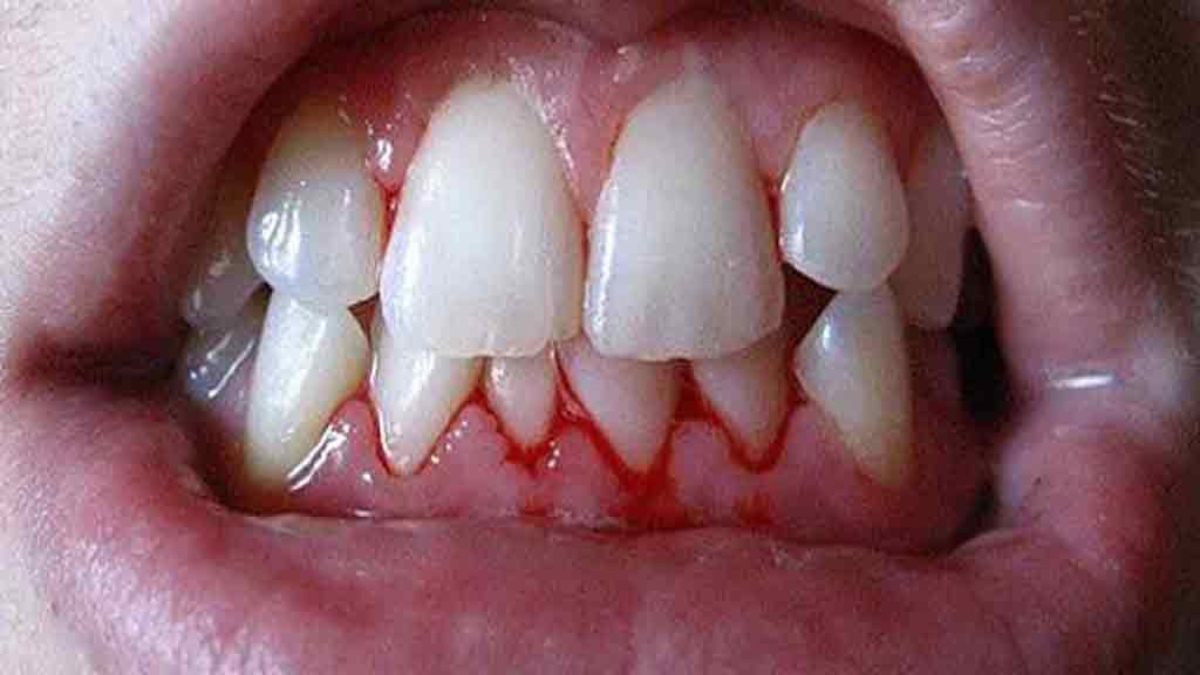
Pyorrhoea (Periodontitis) is set of inflammatory disease affecting the periodontium, i.e., the tissues that surround and support the teeth. It is usually a slow process, caused by bacteria that colonise on the teeth and in the sulcus (the space between the teeth and gums). These bacteria create acids, enzymes and toxins that decay and erode the structures that support the teeth (gums and bone surrounding the teeth). Periodontitis involves progressive loss of the alveolar bone around the teeth, and if left untreated, can lead to the loosening and subsequent loss of teeth.
Poor oral hygiene is the single most common causative factor. Other risk factors include diabetes, smoking, diet high in sugar and refined carbohydrates, etc.
EFFECTS OF PYORRHOEA OUTSIDE THE MOUTH
Pyorrhoea results in a greater degree of bacteraemia (bacteria in blood) especially while brushing and chewing foods. There is sufficient evidence to support the fact that these harmful bacteria and the resultant inflammation can result in a relatively increased risk for:
• Myocardial infarction (heart attack) as the bacteria in the blood causes platelets to aggregate resulting in clot formation in blood vessels (atherosclerosis).
• Infection in heart valves
• Cerebrovascular stroke (brain attack) due to atherosclerosis
• Prosthetic joint infections
• Premature delivery/labour pains in pregnant females
• Low birth weight babies (<2500 gm).
• Pulmonary diseases
• In those over 60 years of age, impairments in delayed memory, depression and poor circulation and other brain disorders
A strong association has been established between diabetes and periodontitis. Blood sugar levels are much more difficult to maintain in diabetic patients with pyorrhoea as compared to diabetic patients without pyorrhoea.
Therefore, it is a must for all diabetic patients to undergo oral screening to rule out the gum infections (pyorrhoea).
HOW YOU CAN DIAGNOSE PERIODONTITIS/PYORRHOEA
Patients should realise gum inflammation and bone destruction are largely painless; and in many individuals the disease has progressed significantly before they seek treatment.
If you have any of the following symptoms you should visit a periodontist (specialists in the treatment of periodontitis and their field is known as “Periodontology” or “Periodontics”.)
• Redness or bleeding/pus discharge from gums while brushing teeth, using dental floss or biting into hard food (e.g. apples)
• Gum swelling that occurs frequently even after professional cleaning/scaling.
• Progressively large gap between the teeth and their outward movement
• Halitosis or bad breath, and a persistent metallic taste in the mouth
• Gum recession, resulting in apparent lengthening of teeth. (This may also be caused by heavy-handed brushing or with a stiff tooth brush.)
• Loose teeth, in the later stages.
WHAT IS THE TREATMENT OF PYORRHOEA?
Treatment primarily comprises of control of periodontal inflammation in the form of non-surgical therapy (professional cleaning/scaling of teeth and oral hygiene instructions) and if needed, surgical therapy. It is a common myth that teeth become loose after scaling procedure. Deep pockets (space between gums and teeth) of 6-7 mm or more requires specialised cleaning, antibiotics or even surgery with bone grafting because at this depth there is a high risk of systemic infection and tooth loss, and risk of other diseases. It should be understood that it is not always possible to form the lost bone in all cases, however further progression of bone loss can be arrested with proper treatment and patient compliance.
HOW YOU CAN PREVENT THE PYORRHOEA
• Maintain good oral hygiene with proper and effective brushing technique as well as flossing or interdental brushes prescribed by your Periodontist.
• Avoid sugar and refined carbohydrates.
• Regular visit your periodontist
Dr Vikender Yadav is Assistant Professor, Periodontics, Centre for Dental Education and Research, AIIMS, New Delhi.















